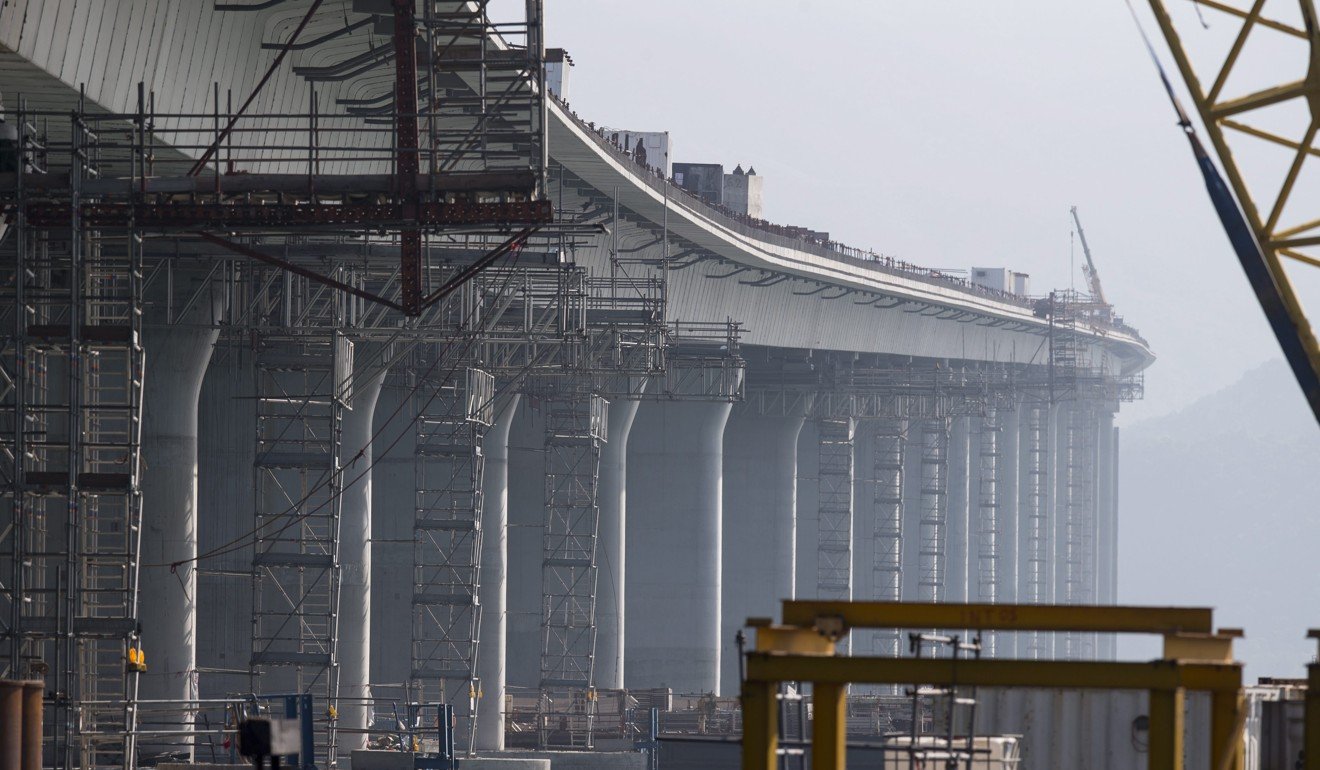
Technicians tasked with testing concrete for multibillion-dollar bridge linking Hong Kong with mainland China faked results, prosecutor tells court
- Group involved in laboratory work linked to Hong Kong-Zhuhai-Macau Bridge face conspiracy charge
- Their firm, Jacob China Limited, was contracted to test concrete cubes being used in world’s longest sea crossing
Twelve laboratory staff who were tasked with strength testing the concrete to be used on the Hong Kong-Zhuhai-Macau Bridge faked test results at their bosses’ requests to cover up mistakes, a court heard on Tuesday.
The group, who worked for Jacob China Limited, would change the time setting on a machine used to test concrete cubes for the multibillion-dollar crossing when they failed to conduct the assessments on time.
When the cubes they meant to test had been damaged, they would substitute them with a metal cylinder, West Kowloon Court heard.
Opening his case, prosecutor Marco Li Kwok-wai said the aim had been to deceive government representatives into thinking the samples had passed the tests, when they had not.

“[They] … dishonestly manipulated the time or conducted mock tests to cover their own mistakes, or failure to comply with the provided procedures for testing the concrete cubes,” Li said.
The 12, Tse Tak-lai, Yu Wai-tak, Lee Wing-fai, Sit Ka-chun, Chan Yui-hang, Yiu Yu-fung, Yip Tak-kit, Lee Chi-kan, Ng Man-hung, Cheung Ka-ming, Jo Chan Chi-shing, and Kwok Man-fai, have all denied one joint count of conspiracy to defraud.
Aged between 24 and 60, most of them worked as technicians, while some were assistants.
Li said the offence took place between 2012 and 2017, when Jacob China was contracted by the Civil Engineering and Development Department to run a laboratory in Siu Ho Wan on Lantau Island.
While the defendants were supposed to make sure the strength of the cubes was up to standard through a compression test, they would cheat when they failed to comply with the requirements, Li said.
He said cubes were supposed to be tested within eight hours of being made. When the lab failed to comply, the defendants’ supervisor would tell them to “fix it”.
The group would then adjust the time on the machine they used, Li said.
Their supervisor would give the same instruction when the cubes they were testing were damaged, when it would be replaced with either a harder cube, or a metal cylinder, and the test would be run again.
Li said technician Ng Kai-yiu, who pleaded guilty, would testify against his former colleagues. Ng would shed light on the details of the case, he said.
The trial, which has been scheduled for 60 days, continues before District Court judge Clement Lee Hing-nin on Wednesday.

